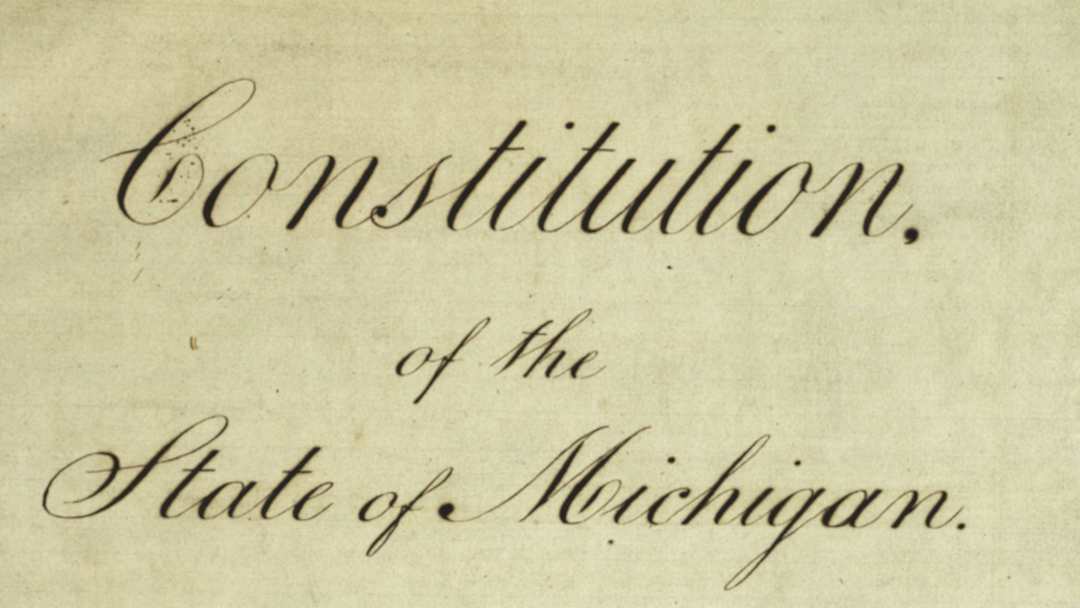These clauses protect property rights and maintain a balance between public needs and individual ownership
The Takings Clauses of the United States and Michigan Constitutions are pivotal components of property law, ensuring that private property is not seized by the government without fair compensation. These clauses protect property rights and maintain a balance between public needs and individual ownership.
United States Constitution: The Fifth Amendment
The Takings Clause is embedded in the Fifth Amendment of the U.S. Constitution, which states, “nor shall private property be taken for public use, without just compensation.” This clause has two primary components: public use and just compensation.
Public Use: The government can only take private property if it is for a public purpose. Historically, this meant projects like highways, schools, or public buildings. However, the interpretation has broadened over time. The landmark case Kelo v. City of New London (2005) expanded public use to include economic development, where the government justified the taking by claiming it would benefit the community economically (Michigan Public).
Just Compensation: The government must provide fair market value for the property taken. This is determined through an appraisal process, though disputes can arise regarding the value. The aim is to ensure the property owner is not financially disadvantaged by the taking.
Michigan Constitution: Article X, Section 2
The Michigan Constitution mirrors the Fifth Amendment’s Takings Clause with some distinct nuances. Article X, Section 2 states, “Private property shall not be taken for public use without just compensation therefor being first made or secured in a manner prescribed by law.”
Public Use: Michigan adheres to the federal standard of public use but has specific state-level interpretations and applications. Following the Hathcock v. Wayne County (2004) decision, Michigan imposed stricter limitations on takings for economic development compared to the broader interpretation allowed by Kelo at the federal level. Hathcock overturned previous rulings that permitted takings for economic development unless the project served a clear public interest, such as addressing blight (Michigan Public).
Just Compensation: Similar to the federal standard, Michigan requires fair market value compensation. The state also provides for additional compensation mechanisms, including potential reimbursement for relocation expenses in certain cases.
Legal and Social Implications
The Takings Clauses aim to protect individuals from the loss of property without proper cause or reimbursement, balancing individual rights with community needs. These clauses ensure that while the government can perform functions beneficial to the public, it cannot arbitrarily or unfairly deprive individuals of their property.
Controversies and Challenges
Broad Interpretation of Public Use: Cases like Kelo have sparked debates on the limits of public use, with critics arguing that broad interpretations can lead to abuse, where private property is taken for private development under the guise of public benefit.
Determination of Just Compensation: Disputes often arise over what constitutes fair market value, with property owners frequently contesting government appraisals.
State vs. Federal Standards: States can impose stricter standards than those set by federal rulings, as seen in Michigan’s response to economic development takings post-Hathcock. This creates a patchwork of interpretations and applications across the country, affecting property rights differently depending on the state.
Recent Developments
The Michigan Supreme Court’s recent ruling in Rafaeli, LLC v. Oakland County emphasized that surplus proceeds from tax-foreclosed property sales should return to former homeowners, underscoring the protection against governmental overreach and unjust enrichment. This ruling aligns with the principles of the Takings Clauses, ensuring fair treatment and compensation for property owners (Michigan Public).
Conclusion
The Takings Clauses of the United States and Michigan Constitutions serve as vital safeguards for property rights, mandating that any governmental taking of private property must be for a public use and with just compensation. These clauses continue to evolve through judicial interpretations and legislative adjustments, reflecting ongoing efforts to balance public interests with private property rights.
Read here:
Legal Counsel and Your Rights
When facing legal challenges, particularly in criminal cases, it is advisable to seek legal counsel immediately.
An experienced attorney can provide guidance on how to navigate interactions with law enforcement while safeguarding your constitutional rights.
Since 1993 our expert legal defense in navigating criminal law matters and protecting your constitutional rights are what we eat for breakfast everyday.
Contact Komorn Law PLLC if you’re ready to fight and win.
Research us and then call us.
More Rights You Should Know

Michigan Supreme Court Vacates Court of Appeals Ruling of State Anti-Terror Statute
Michigan Supreme Court Vacates Court of Appeals Ruling, Temporarily Preserves State Anti-Terror StatuteIf you are charged with a crime you're part of the State of Michigan family now. Call us - Because you don't want to be a part of that family. Komorn Law (248)...

What could happen when you click the – I agree – box?
Wrongful death suit against Disney serves as a warning to consumers when clicking ‘I agree’A wrongful death lawsuit involving Walt Disney Parks and Resorts highlights the critical importance for consumers to meticulously review the fine print before registering for a...
Other Articles
Criminal Law FAQs – Drinking Alcohol or Smoking Marijuana and Driving
Michigan Criminal Laws FAQs Operating a Motor Vehicle Under The InfluenceWalking is cool... For fun and excercise. Not because you lost your license. Don't do the crime if you can't pay the price. But if you do get charged with a crime. Better Call Komorn to fight for...
Criminal Law FAQs – Probation Violations
Michigan Criminal Laws FAQs Theft CrimesAccording to Michigan State Law (Michigan Compiled Laws - MCL), a Probation Violation occurs when a person who has been sentenced to probation fails to comply with the terms and conditions of their probation order. These terms...
Michigan lawmakers want to revive “junk science” roadside drug testing
The Roadside Drug Test...AgainHouse bills 4390 and 4391The proposed House bills 4390 and 4391 would enable law enforcement to administer tests aimed at assessing driver impairment; however, these testing devices do not provide information regarding the level of...
Criminal Law FAQs – Theft Crimes
Michigan Criminal Laws FAQs Theft CrimesAccording to Michigan State Law (Michigan Compiled Laws - MCL), Theft Crimes generally involve the unlawful taking of someone else's property with the intent to deprive them of it, either permanently or for a significant period....
Criminal Law FAQs – Domestic Violence
Michigan Criminal Laws FAQs Domestic ViolenceAccording to Michigan State Law, Domestic Violence is not a standalone criminal offense but rather a designation applied to certain crimes when the victim is a "spouse or former spouse, an individual with whom the person...
Criminal Law FAQs – Assault and Battery
Michigan Criminal Laws FAQs Assault and BatteryAccording to Michigan State Law, Assault and Battery are distinct but often related offenses. There isn't one single statute that explicitly defines both terms together. Instead, their definitions have evolved through...
Other Bodily Fluid House Hearing – HB-4391- Update 5-22-25
Michigan House HearingHB-4391 Saliva Test Update 5-22-25Watch the hearing or read the summary.Click here or image below to see videoFYI: Marijuana although voted to be legalized is still classified as a controlled substance in the State of Michigan and Federally. More...
Criminal Law FAQs – Marijuana Offenses
Michigan Criminal Laws FAQs Marijuana OffensesFAQ 1: Is recreational marijuana legal in Michigan? Answer: Yes, recreational marijuana is legal for adults 21 and over in Michigan. However, there are restrictions on possession, use in public places, and driving under...



















